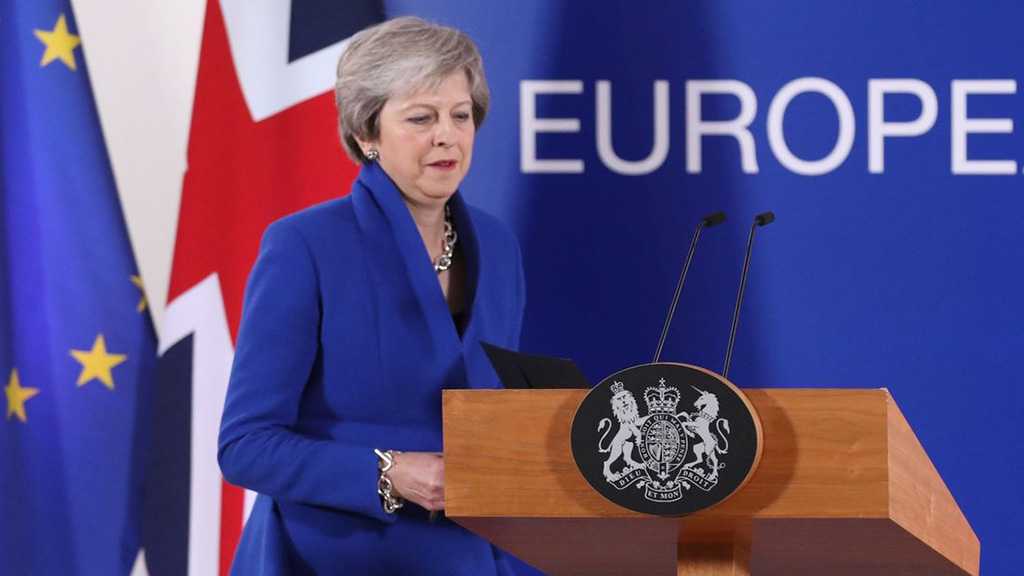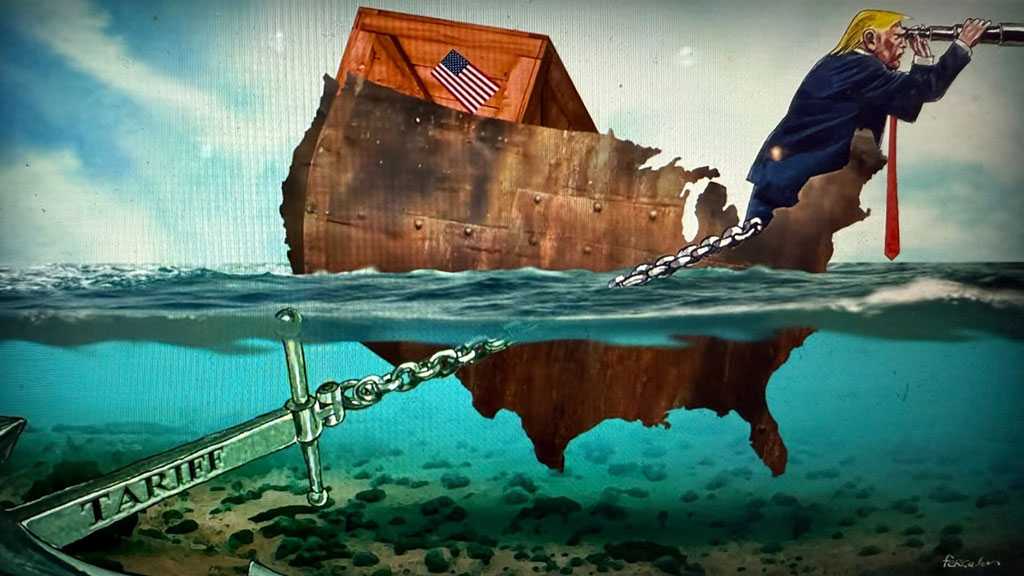Editor’s Picks: World Media Discuss Brexit, Theresa May’s Latest

Local Editor
With the tidal flow of the United Kingdom’s exiting the European Union, and the attack on British Prime Minister Theresa May’s decision, top world media outlets dealt with the issue among today’s top priorities.
To begin with, the New York Times Editorial Board asked: What’s Next, Mrs. May?
Knowing she would lose, May on Monday aborted a vote on her embattled Brexit deal. The humiliation of the moment was underscored by the derisive laughter in Parliament as the prime minister announced the delay, especially when she claimed there was still “broad support for many of the key aspects” of the agreement. But as the March deadline looms for Britain’s exit from the EU, the question is whether the search for a compromise has been a mission impossible all along.
According to the paper, the delay was another of the many “What next?” moments since the fateful referendum in June 2016 in which the British voted 51.9 percent to 48.1 percent to leave the European Union. But with the bloc showing little interest in reopening negotiations on the 585-page agreement it reached with May, the options are few and fraught.
Once again, questions are being asked about what May should or should not have done over the two and a half years that she has struggled to bridge the gap between those who demand an exit from the union no matter what the consequences, and those who see that exit as an economic and social disaster. No doubt May made mistakes. But as Ellen Barry noted in a report in The Times on May’s quest for a compromise, “Historians will dispute whether such a thing was ever possible.” And May, she writes, was probably the right person to give it a try: an old-fashioned civil servant, without ideology or overweening ambition.
Furthermore, Tanya Gold wrote for the paper:
Everyone I know is either a Brexit Denier — “It’s not happening,” they say. “We’ll have a People’s Vote! Another referendum! We’ll win this time!” — or a Brexit Apocalypticist — “It’s happening. We are doomed. Hold my hand and run toward the blast.”
The only people who are hopeful are the far-right supporters of a “hard Brexit” who marched through the streets of London on Sunday protesting May’s “betrayal” and carrying her effigy. They didn’t hang it. Presumably, that can wait.
On Monday, the real May postponed the long-planned vote in Parliament on her Brexit deal, the one she spent 20 months negotiating with the EU and the last three weeks trying [and failing] to sell to the British public and Parliament. What’s next? Apparently, she will go to Brussels on her knees, begging for further concessions. She doesn’t know how to implement the will of the people, if the will of the people — or at least the people who hold her political future in their hands — is suicide.
It feels like a good time to mention that the Palace of Westminster is falling apart. The building itself is a rotting construct, honoring an imagined past and — just for fun — built on a marsh. What does that remind you of, eh? It was not much publicized, for obvious reasons, but on June 23, 2016, the day of the Brexit referendum itself, the basement was flooded with sewage. It was rainfall and a high tide, they said, but I know better.
For its part, The Guardian’s view considered May on the run:
May decided to pull the parliamentary vote on her Brexit withdrawal agreement because she knew she would lose. She has been humiliated by her own MPs. It is staggering that this defeat only became obvious to her after it had been clear to everyone else for weeks. In the end, she chose to run rather than stand and fight for what she had agreed with European leaders. May is not saving her leadership, she is devaluing it to the point of worthlessness.
She has no one to blame but herself for this mess. In the last two years the government has devoted itself to leaving the EU in a manner consistent with May’s obsessions – primarily controlling immigration. Her resulting withdrawal agreement has been rubbished by her own unruly troops. They will not be easily instructed to march in a different direction.
The prime minister wants to play for time, saying only that the vote on her deal, replete with reassurances, will be held by 21 January – the last possible date to do so. If dodging a defeat becomes the only way for May to survive, then the indications are that she will delay a vote until the last possible moment. This is playing politics with the nation’s stability. It ill behooves any prime minister to be so cavalier about such a serious issue.
Her decision to stay on is one based on her own self-interest and that of her party rather than the country. May is now a diminished figure, with her authority draining away on the most important issue facing Britain. It is galling to hear her claim that the 2016 referendum vote was a cry for help from left-behind Britain when it was Tory austerity that hollowed out deprived regions. Since then, Brexit has immobilized the government, leaving it unable to deal with these problems.
Meanwhile, The Washington Post’s Editorial Board considered there’s no good way out of the Brexit disaster.
Britain took a step deeper into political turmoil Monday when May, facing certain defeat, postponed a parliamentary vote on the plan for Britain’s departure from the European Union that she had painstakingly negotiated with EU leaders. May said she would seek “further assurances” from Brussels on the most problematic piece of the agreement, a “backstop” to avoid a hard border between British Northern Ireland and the Republic of Ireland. Critics said it was unlikely she could obtain concessions that would satisfy dissenters in her own governing coalition, much less opponents seeking its ouster from power. Yet no other formula for ending the country’s self-destructive battle over Brexit seemed able, for now, of commanding a parliamentary majority. The likely result is weeks more of uncertainty and bitter debate.
At the heart of the chaos engulfing the US’ closest ally is the contradiction between the vision sold to voters who supported leaving the EU in a June 2016 referendum and the reality of the deal Ms. May came home with. Britons were told they could regain sovereignty from EU governance without suffering any economic consequences. In fact, any Brexit will leave the country poorer. That is true of the deal being offered by May. It is even more true of the “no-deal Brexit” that could occur next March 29 if Parliament does not act, causing massive disruption, including shortages of basic goods.
Yet even that is not the direst prospect. Any deal that leaves Britain out of Europe’s single market could create a border between the two Irelands and threaten the peace accord that ended decades of violence in the North.
Respectively, the Wall Street Journal commented on the issue under the title of “The Road to a Bad Brexit”
Britain’s miserable Brexit debate took another bad turn on Monday when May delayed a vote on her withdrawal agreement with the European Union. At this late date there still is no consensus in Parliament on whether or how to proceed—and most of the ideas lawmakers are floating are bad in one way or another.
The argument in London now concerns whether to pursue a no-deal option, May’s deal for a permanent customs union, a trade deal that mimics Norway’s with the EU, or a new referendum to free lawmakers from the burden of deciding. Presumably someone will eventually have to pick some option.
Yet it’s also false to frame this as a decision that will determine Britain’s future forevermore. Britain and the EU will both change in coming years. New opportunities will arise to improve on whatever Brexit settlement emerges now either by reconfiguring a trade deal or negotiating a new relationship after a hard, no-deal Brexit. Before that can happen, Britain and the EU have to learn from the fiasco of the past two years.
One lesson is that unhappy countries have to be ready to leave the EU, and not merely willing. Greeks discovered this in 2015 when their euroskeptic government and voters concluded its weak and unreformed economy couldn’t withstand a departure after all. Britain is no Greece, but its Brexit faction is reckoning with the consequences of its own economic-policy shortcomings.
Neither Britain nor the EU was politically or intellectually ready for Brexit. A failure of leadership has made the breakup far more difficult and damaging than it had to be, the WSJ concluded.
Source: Al-Ahed News




